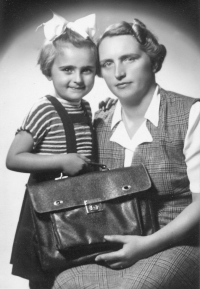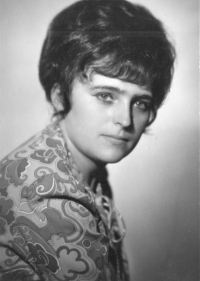Never join the party, even if I were to die

Download image
Helena Zikmundová was born on 10 October 1945 in Krásné Údolí in the Tachov region, but lived all her life in Prague. At her father’s request, she trained as a cook and worked at the plant canteen at the Troja Dairy in Holešovice for many years, later running the canteen. She remembers especially the occupation in August 1968, which shocked her deeply. When she saw the dead and wounded near the Czechoslovak Radio building and elsewhere in Prague, she and her husband decided to help. They brought milk from the dairy where they were both employed and bread from a nearby bakery to those in need to make up for the dwindling supply. They also experienced several unpleasant checks by the occupation soldiers. During the ‘normalisation’ years, they had to deal with housing problems. At the time of the interview, she lived in Zruč nad Sázavou.



